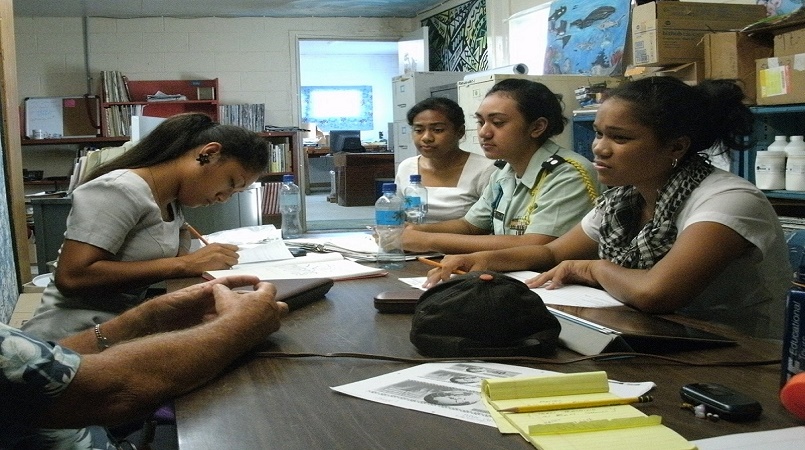
Leadership, wage gaps, safety, health and care work are five areas of gender disparity in the Pacific islands region that require innovative action given their profound effects on societies and individuals.
That is the message from the Pacific Community (SPC) as the region marks International Women’s Day today (8 March).
In line with the international theme for the day “Pledge for Parity”, SPC is calling for greater debate on ways of closing gender gaps in the Pacific and concrete ways of addressing them.
Despite critical advances, Pacific women and girls are still faced with cultural, social, economic and institutional barriers to developing their full potential, according to a progress report on implementing the Beijing Platform for Action released by SPC in 2015.
“The Pacific Community is committed to ensuring that Pacific people benefit from sustainable economic development, are empowered and live long and healthy lives, regardless of their gender,” Pacific Community Director-General, Dr Colin Tukuitonga said.
“Parity should be promoted at all levels and in all sectors, from public governance to changing nappies.
“From local contexts to the international arena, Pacific women and men are hard at work to shape more egalitarian societies and their efforts should continue to be acknowledged and supported through responsive policies and programmes.
“To see Hilda Heine’s election as President of the Republic of Marshall Islands, which represented the first election of a female head of state in a Pacific Island country, and the recent appointment of Fiame Naomi Mata'afa as Samoa's first female deputy prime minister is extremely encouraging.
“We also need to look at risks Pacific people face from a gender perspective, from non-communicable diseases to women’s unacceptable exposure to domestic violence or men’s vulnerability to road injuries, because those risks stem from the roles and attitudes expected from men and women,” Dr Tukuitonga added.
Data shows that diabetes prevalence in the Pacific Island region is higher among women than men, with the exception of Solomon Islands and Niue, according to the Australian and New Zealand Journal of Public Health.
The region-wide epidemic of non-communicable diseases (NCDs) is aggravating the burden of care that women already face, with evidence of women leaving the workforce to provide full-time care to family members.
The resulting social, cultural and economic impacts on the lives of women and their families are staggering, and are likely to challenge some of the progress made on women’s advancement.
The themes will be the focus of dialogues taking place today at SPC offices in Noumea and Suva.
